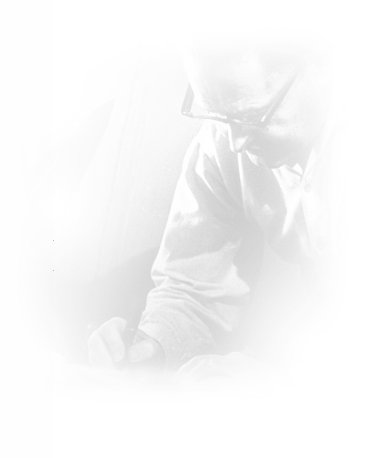The Poet Of Hope
 Provocation is a tool used throughout history to suppress people. Nâzım Hikmet becomes a victim of provocation as well. In the 20’s and 30’s, he spends time prison because of his poems and books. His longest prison years start at 1938. Like Dreyfus he becomes victim of fake accusations against him
Provocation is a tool used throughout history to suppress people. Nâzım Hikmet becomes a victim of provocation as well. In the 20’s and 30’s, he spends time prison because of his poems and books. His longest prison years start at 1938. Like Dreyfus he becomes victim of fake accusations against him
Even the harsh prison conditions are not enough to silence him. He continues to reach out to people behind walls, and writes the epic of his people. In the Epic of Şeyh Bedredding which is published in 1936, he looks at the Ottoman history. In this epic, we see poetry and prose side by side) The Epic of the War of Independence and Human Landscapes from My Country,, which he started writing in 1941, are his masterpieces where he brings his people’s war of independence down to each Turkish individual, and makes it real with his movie-like narration. With the Human Landscapes form my Country, he starts out from the biography adorned history of the Turkish people and leads into world history. He allows us to view events from the beginning of the century to the Balkan wars, from the war of independence to the second world war from a wide perspective. The Epic of the War of Independence is one of the best example of this: )
PLEA
This country shaped like the head of a mare
Coming full gallop from far off Asia
To stretch into the Mediterranean
This country is ours.
Bloody wrists, clenched teeth bare feet,
Land like a precious silk carpet
This hell, this paradise is ours.
Let the doors be shut that belong to others
Let them never open again
Do away with the enslaving of man by man
This plea is ours.
To live! Like a tree alone and free
Like a forest in brotherhood
This yearning is ours.
(Now here’s a section of the Epic where he talks about women, the invisible heroes who carried the war on their backs: )
The ox carts rolled under the moon.
‘The ox carts rolled beyond Akşehir toward Afyon.
But the earth was so endless
and the mountains so far in the distance,
it seemed they ‘d never reach their destination.
the Ox Carts advanced on solid oak wheels,
the first wheels that ever turned
under the moon.
the oxen belonged to a world
in miniature,
tiny and dwarfed
under the moon,
and the light played on their sickly broken horns,
and the earth flowed under their feet, earth
and move earth.
the night was bright and warm, _
and in their wooden beds on the ox carts
the dark-blue bombshells were stark naked.
And the women
hid their glances from each other
as they eyed the dead oxen
and wheels from past convoys
and the women, our women
with their awesome sacred hands,
pointed little chins, and big eyes,
our mothers, lovers wives
who die without ever having lived,
who get fed at our tables after the oxen,
who we abduct and carry off to the hills
and go to prison for,
who harvest grain, cut tobacco, chop wood, and barter in the markets,
who we harness to our plows,
and who with their bells and undulant heavy hips
surrender to us an sheepfolds
in the gleam of knives stuck in the ground******
the women,
OUR women….
Nazım Hikmet does not cut all ties with the outside world in prison. While teaching prisoners weaving, mirror making, carpentry, which will allow them to have a vocation in the future, he helps raise authors like Orhan Kemal, painters like İbrahim Balaban. He maintains his teaching role throughout his life, and supports and guides young artists and poets.
He takes life seriously. He takes it so seriously that, without anyone forcing him to say so, he can tell people he’s never seen or met that one can die knowing that the most beautiful thing is living. He loves life, meaning, people.
*ON LIVING
Life’s no joke,
you must live it in earnest
like a squirrel,
for example,
expecting nothing outside.
your life or beyond,
you must concentrate wholly
on living.
You must take living seriously,
so much so that, your back to the wall;
your arms bound behind;
or in a laboratory
in your white coat and
big goggles
you can die for mankind,
even for people
whose faces you’ve never seen,
even though nobody farces you,
even though you know the best thing,
the most real, is to live.
You’ll take living so seriously,
that even at seventy
you’ll plant olive tree
not just to leave to your children;
but because,
although you fear death
you don’t believe in it,
so great is the power of life. While talking about how hope never ends in his poems, between 9 and 10 pm that he sets aside for his wife each evening, he writes the incredible love poems filled with longing. In the poems he writes to his wife, he explains that freedom is experienced in the mind and that nobody can dictate his thoughts.
They captured us, and threw us into jail;
me inside the walls,
you outside.
Ours is small business;
but the worst thing is,
consciously or unconsciously
to carry prison inside one. most people are in this situation,
honourable, hard working good people,
worthy of being loved as much as I love you .
*Letter to My wife
My love!
In your last letter you say ‘
my head is aching my heart is stunned:
‘If they hang you
if I loose you You SAY.
I cannot live.’
But you can, my love;
end- image disperses in the wind
like a thick, black smoke.
Of course you will live the red-haired sister of my heart;
mourning the dead in the twentieth century at the most lasts a year.
Death
dead man at the end of a rope swinging
but oddly enough
my heart doesn’t accept this kind of death.
 Türkçe
Türkçe  ENGLISH
ENGLISH  Español
Español  Русский
Русский 

